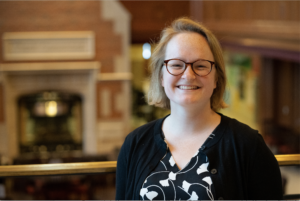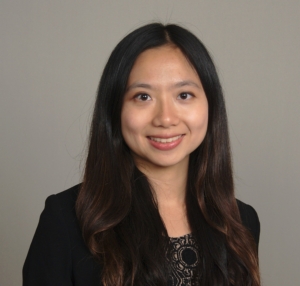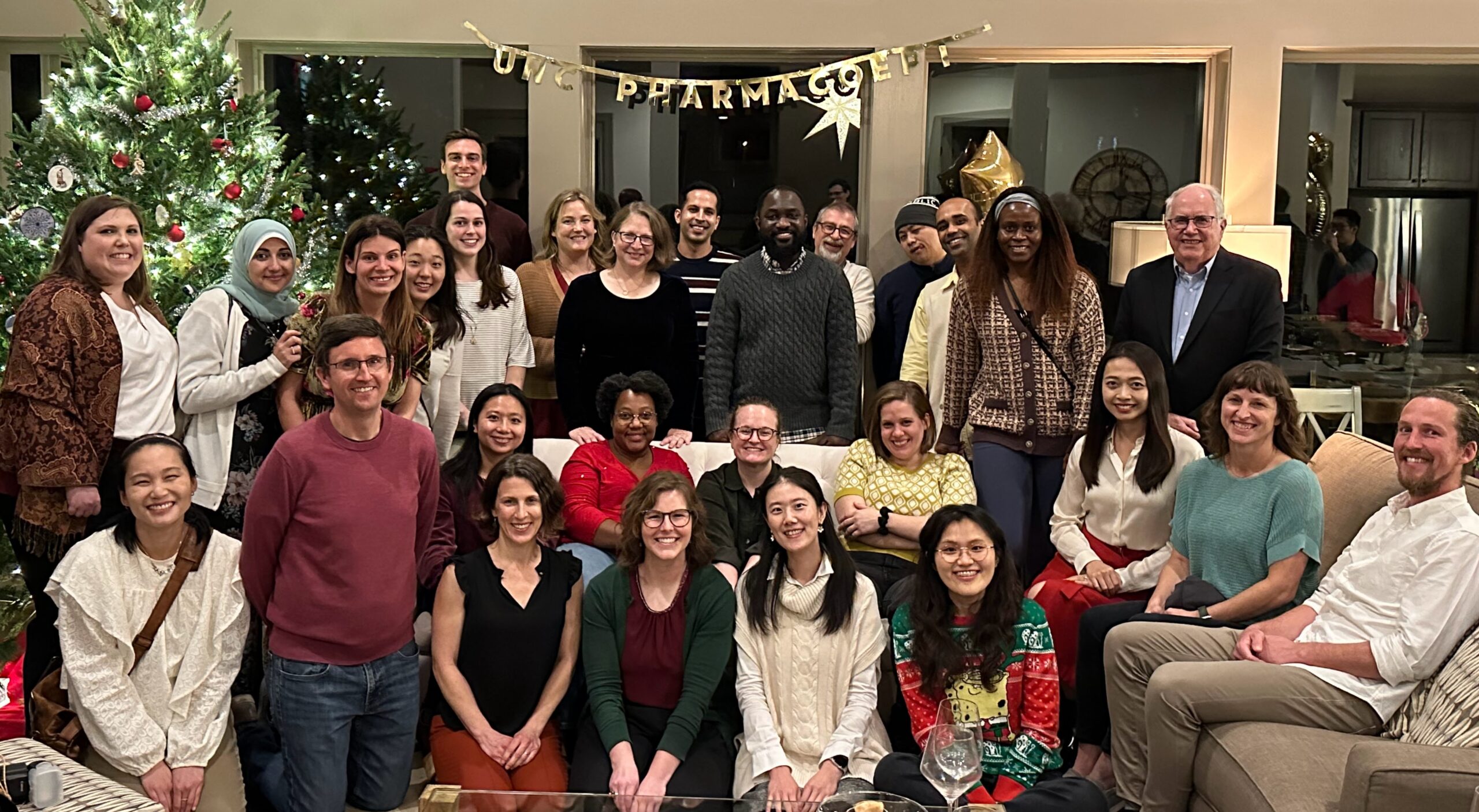Students
Students on the pharmacoepidemiology program pursue a wide range of research areas in their graduate studies supported through faculty-led research grants, graduate research assistantships at UNC and external fellowships in industry (including members from the Center for Pharmacoepidemiology), contract research organizations and federal agencies. Descriptions of current students and their work are provided below.

Chase Latour is a fifth-year PhD student in the Department of Epidemiology at UNC, a previous predoctoral fellow with the Center for Pharmacoepidemiology, and a current NRSA predoctoral fellow through the Cecil G. Sheps Center at UNC. She earned her bachelor’s degree with double majors in Mathematics & Statistics and Anthropology at Washington University in St. Louis. During this time, Chase was heavily involved in research on mental health and human trafficking and through this work, garnered a strong interest in epidemiology. She joined UNC’s PhD program in 2019 and began working as a research fellow at TargetRWE in May 2020.
Chase’s dissertation is focused on the use of antihypertensives among pregnant people with chronic hypertension. For this work, she is working with other investigators to derive and validate an algorithm to define pregnancies in electronic health record data. Outside of this, she is involved in work surrounding sensitivity analyses for uncontrolled confounding from unmeasured variables, use of long-acting reversible contraceptives, and treatment for benign prostatic hyperplasia. At TargetRWE, Chase, with another student, is conducting simulation studies around sequential target trials. Outside of graduate school, Chase enjoys gardening, hiking, making ceramics, playing with her cats, and spending time with friends and family.

Claire (I-Hsuan) Su is a fourth-year PhD student in the Department of Epidemiology at UNC, a previous predoctoral fellow with the Center for Pharmacoepidemiology, and a current Global Health Economics & Outcomes Research predoctoral fellow at Bristol-Myers Squibb. Prior to her doctoral program, she earned a BA in Mathematics & Statistics from Carleton College and an MS in Biostatistics from UNC. Her previous work as a Data and Policy Analyst at Acumen LLC involved leveraging claims data to study post-market vaccine safety and drug prescribing patterns within a regulatory context.

Jacob Kahrs is a third-year PhD student in the Department of Epidemiology at UNC and a current predoctoral fellow with the Center for Pharmacoepidemiology. Prior to joining the UNC Epi Department, Jacob earned his BA in Biology with a concentration in Public Health from Williams College. He first joined the Epidemiology department in 2019 as an MPH student in the Applied Epidemiology program.
During his time at UNC, Jacob’s research has focused on both substantive and methodologic questions related to the clinical care of pregnant people and children. His dissertation involves developing algorithms for identifying urinary tract infections during pregnancy and comparing the safety and effectiveness of the most common treatments. He is also leading a study comparing migraine treatment strategies in early pregnancy. Beyond this applied work, Jacob has led research related to quantitative bias analyses for birth defects studies, developed algorithms for identifying perinatal and pediatric diseases and is currently involved in developing an electronic health record database of pregnancies. He also collaborates with the Department of Emergency Medicine and has been a research assistant for Merck & Co., Inc. and GlaxoSmithKline. Outside of school, Jake enjoys trail running, climbing, watercolor painting and spending time with friends.
Clement Acheampong is a second-year doctoral student in the Department of Epidemiology at University of North Carolina at Chapel Hill, and a current predoctoral fellow with the Center for Pharmacoepidemiology.

Clement holds a Bachelor of pharmacy degree from Kwame Nkrumah University of Science and Technology, Ghana, and a Master of Public Health degree from Missouri State University. Before starting his PhD, he worked as a public health analyst with RTI International, an epidemiologist with the Community Partnership of the Ozarks and the CDC Foundation, and as a medical representative with Glaxosmithkline Ltd, Ghana. In these roles he engaged in various projects involving real-world evidence generation, pharmacovigilance activities, policy evaluation, substance use prevention, and occupational health research.
As a PhD student, Clement is currently collaborating with other researchers on a project to explore the effect of incretin-based diabetes therapies on the risk of thyroid cancer (medullary subtype) among the US elderly population. This project aims to estimate the comparative effect of GLP-1 agonists and DPP-IV inhibitors versus sodium-glucose cotransporter-2 (SGLT-2) inhibitors on the incidence of thyroid cancer using Medicare claims data. Additionally, he has been involved in work on a systematic literature review looking at the use of sensitivity analyses to assess uncontrolled confounding from unmeasured variables in observational, active comparator pharmacoepidemiologic studies.
Outside of academics, Clement enjoys watching soccer, playing video games, and spending time with friends and family.
Tyroler Student Prize Paper Award 2020
 Michael Webster-Clark
Michael Webster-Clark
Michael Webster-Clark is currently a post-doctoral research associate at the University of North Carolina at Chapel Hill. After receiving his Doctor of Pharmacy degree from Northeastern University, his interest in comparative effectiveness research and the external validity of randomized trials prompted him to seek a PhD at UNC. His current research areas include propensity scores, transportability and generalizability of randomized trials, and pharmacoepidemiology methods.


